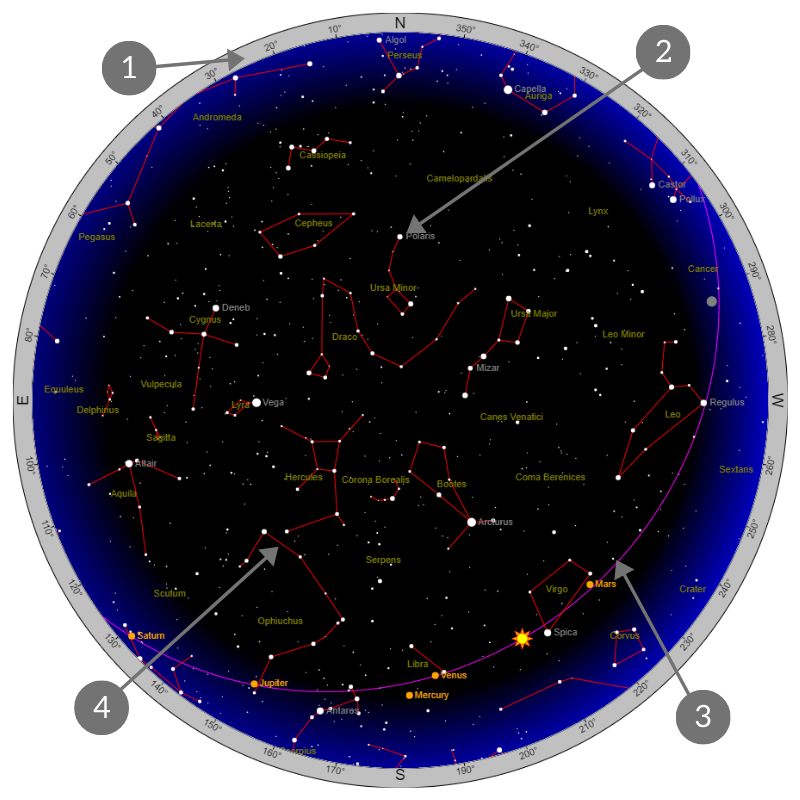
Anatomy of a Star Map

1) Compass
Use a compass to orient your star map to the night sky.
2) The celestial poles
The night sky seems to revolve around these poles. In the northern hemisphere, the celestial pole is located near Polaris. In the southern hemisphere, it is located in the constellation Octans.
3) Ecliptic
The Sun, the Moon and the planets are always near this line.
4) Clusters
Most stars are found within constellations or within patterns called asterisms.
How to use a Star Map
- Orient the star map
Hold the star map over your head facing south in the Northern Hemisphere, facing north in the Southern Hemisphere. Orient the star map with the cardinal points and use a red light to read it.
- Scan the sky
Several nights of observation will allow you to know the constellations well. To locate the planets, practice finding the ecliptic plane (also called the plane of the ecliptic).
- Explore the sky from star to star
Have fun going from star to star to find other celestial objects. Locate a bright star and use it as a reference to locate less bright celestial objects.
